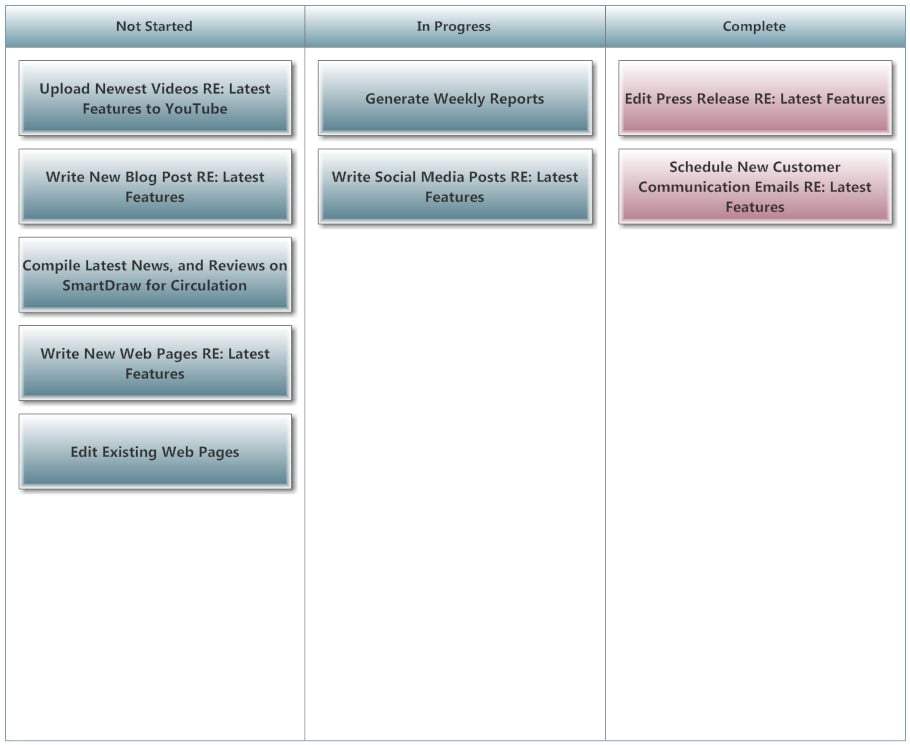If you're a non-traditional project management professional, here are four reasons why you should use Kanban boards.
You may have tried using Gantt charts and other project charts in the past to keep your project tasks organized. You may have found that Gantt charts are for projects with layers of complexity that yours may not have. Most people approach projects by dividing their work into three basic areas:
- what I am working on
- what I've completed
- what I have yet to start
Kanban boards do exactly that. You don't waste time setting project milestones or creating and adjusting task dependencies—even if there are some. All you need is a high-level view of task status.
One of the best reasons to use Kanban boards for task management is that anyone can glance at the Kanban board and quickly understand where everything stands. Other project charts, in my opinion, can be overwhelming to read. Often, I have no idea what I'm looking at. Kanban boards quickly and easily communicate the current status of tasks—without information overload.
Okay, so I ended the last paragraph with a buzz kill by already stating this. But it garners a little more depth than mere assertion. For non-traditional project managers like me, this is important. Why? Because I'm a bottom-line type of guy.
I already understand that projects and tasks have team member responsibilities, dependencies, milestones, and a whole array of layers that are essentially rolled up in the Kanban board. But ultimately, all I want to know is: where does this project (or task) currently stand?
Here's an example. During a meeting, I often need to communicate the details of a project or specific task. I find that a simple Kanban board works much more easily than a Gantt chart. The Kanban board allows a simple walk-through without a lot of distracting details. Any details can be delivered orally—if they require discussion at all. This brings me to the final reason why you should use Kanban boards.

Meetings can be a huge time suck—for you, for those you manage, and for those who manage you. Robust discussions can many times be very helpful for brainstorming ideas and other strategic purposes. But project status meeting discussions can very easily become long and laborious. Kanban boards are perfect for hitting the high level points of projects and task status. A non-traditional project manager like me can cover a lot of ground in a short amount of time keeping people up-to-date. If a specific detailed discussion is needed on any point, we can wrap it up and quickly move on down the line to the other cards on my Kanban board.